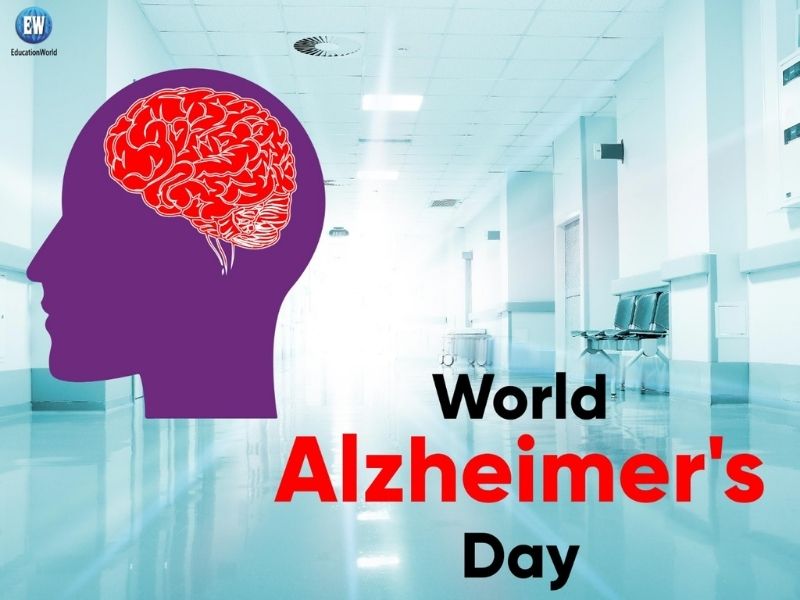– Sukanya Nandy
World Alzheimer’s Day is observed on September 21 each year as part of the World Alzheimer’s Month which is a global initiative conceptualised to raise awareness and challenge the stigma surrounding dementia. One of the most common types of dementia, Alzheimer’s is a chronic neurodegenerative disease which can affect one’s memory, thinking and behaviour. It was reported in 2017 that Alzheimer’s affects around 1.6 million people in India.
“Covid-19 is a huge challenge for people with dementia in every aspect. The biggest being the isolation they are facing and many without understanding why because of the cognitive impairment, they have struggle in understanding why things are happening the way it is,” says Nilanjana Moulik, secretary, ARDSI, Kolkata Chapter. She adds isolation is another challenge faced by the patients, “Due to this isolation, there is a change in their regular routine and the disruption has effected their behaviour. Dementia patients, who were coming to our day care centre before the lockdown started had a routine and now the disruption has caused them a lot of confusion and they get stressed out.” She also adds that their is an increased level of frustration because of reminders about wearing masks as they do not understand why suddenly they need that.
Dr. PR Krishnan, consultant, neurology, Fortis Hospital, Bannerghatta Road, Bangalore says, “The number of people who used to get diagnosed and treated has been affected. The treatment of Alzheimer’s disease, if started early, can postpone the progression of the disease. But now, since patients are not coming to us, they are suffering to a great extent. The fact is also that we don’t want elderly people to come and expose themselves to the Covid-19 patients in the hospitals and get infected as that would also be counter-productive. It is a difficult situation I would say.”
Dr Krishnan adds that the hospital is “encouraging people to consult on phone or video calls. But certain tests are required before we label them as Alzheimer’s patients and examining the patients is very difficult now.”
Not only patients, caregivers are also effected
Dr Krishnan says, “Caregivers are recommended to continue to follow up even if it is through online mode. Newer diagnosis are required to be brought to the hospital at least for one evaluation and the follow up can be done online. Bringing patients to the hospitals is also a challenge, even before Covid it was difficult but right now it has become worse.”
He adds, “We also have a neurological evaluation for dementia patients, which can be done through telemedicine. Diagnostic process can be facilitated but telemedicine consultation is helpful at a preliminary evaluation so as to decide what is to be done and they can avoid coming to the hospital on multiple times and we can schedule all their tests at once and send them off without wasting time.”
Moulik says, “We have slowly started opening up our centre with a lot of caution and care. Since our daycare stopped in mid-March, those who could not come, we have been in constant touch with their family members. To the caregivers, we gave basic tips like do not switch on the news because any amount of information that is not in your control is not going to be positive, it’s going to be negative. As far as keeping the patients engaged at home, we have divided it into a few things like how people with dementia can wash their hands every second or wear masks. What we found out is that it is going to be very difficult as they will not be able to stay touch with the patients. We guided the caregivers to wear masks and keep the distance as we cannot expect that from the patients. If you tell them to wash their hands, they will not do but if you go to the washroom and start washing your own hands, they will follow. Rather than saying them, show them what needs to be done. Communicate non verbally by giving them cues and showing them what needs to be done.”
“Caregivers are facing numerous challenges in life much worse then the challenges of Covid-19. We did a survey on the effect of Covid on these caregivers and found out that coronavirus has only added to their difficulty but not that they do not face challenges otherwise. The point of isolation is to keep them safe but that is not the case here, mental health wise they are affected. We have lost so many of our clients in the last six months – not to Covid-19, but because they were isolated, had no physical or mental activity, these people just gave up. Many of them died and many of them are not able to function, walk around anymore, so now we are providing them homecare. Physical distancing is a bad idea when it comes to people with dementia – the physical touch, the warm hug is how you connect with them and if that’s not happening, then the whole point of the quality care is not happening. We trained our caregivers a lot and it was basically on how you keep yourself clean and safe because you cannot expect the person to do that, so you have to keep yourself sanitised and wear masks. Even when it comes to wearing masks, when we enter somebody’s house, we do not enter wearing the mask as they will not be able to recognise us. Showing your face and then wearing a mask is effective – we have also seen that if they see us wearing a mask, they will copy us and wear it immediately,” concludes Moulik.
Read: World Alzheimer’s Day: Ways to keep the disease at bay
Also read: Why mind sports are good for children
Posted in International, News























